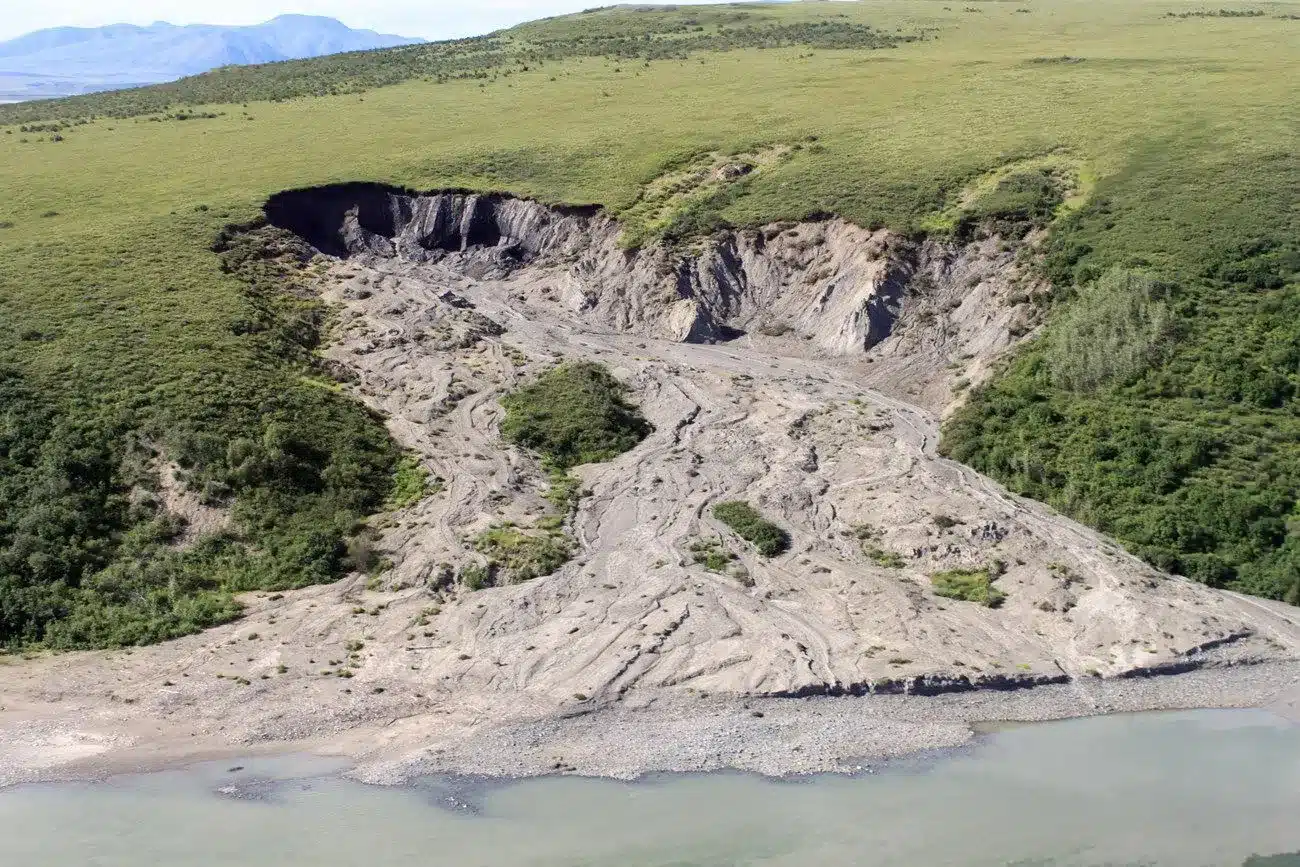About Mass Wasting:
- It is the movement of rock and soil down slope under the influence of gravity.
- Causes:
- Mass wasting occurs when a slope is too steep to remain stable with existing material and conditions.
- Slope stability is determined by two factors: the angle of the slope and the shear strength of the accumulated materials.
- Mass-wasting events are triggered by changes that over steepen slope angles and weaken slope stability, such as rapid snow melt, intense rainfall, earthquake shaking, volcanic eruptions, storm waves, stream erosion, and human activities.
- Excessive precipitation is the most common trigger.
- Mass-wasting events are classified by their type of movement and material, and they share common morphological surface features.
- The most common types of mass-wasting events are rockfalls, slides, flows, and creep.
- Geologically, landslide is a general term for mass wasting that involves fast-moving geologic material.
- Loose material along with overlying soils are what typically move during a mass-wasting event.
- Moving blocks of bedrock are called rock topples, rock slides, or rock falls, depending on the dominant motion of the blocks.
- Movements of dominantly liquid material are called flows.
Movement by mass wasting can be slow or rapid. Rapid movement can be dangerous, such as during debris flows.
Q1: What is Debris flow?
Debris flows are fast-moving landslides that are particularly dangerous to life and property because they move quickly, destroy objects in their paths, and often strike without warning. Debris flows generally occur during periods of intense rainfall or rapid snowmelt and usually start on hillsides or mountains. Debris flows can travel at speeds up to and exceeding 35 mph and can carry large items such as boulders, trees, and cars.
Source: Frequent mass wasting in Tibet a cause for worry in India
Last updated on February, 2026
→ UPSC Notification 2026 is now out on the official website at upsconline.nic.in.
→ UPSC IFoS Notification 2026 is now out on the official website at upsconline.nic.in.
→ UPSC Calendar 2026 has been released.
→ UPSC Final Result 2025 is expected to be released in the second week of April 2026.
→ Check out the latest UPSC Syllabus 2026 here.
→ Join Vajiram & Ravi’s Interview Guidance Programme for expert help to crack your final UPSC stage.
→ UPSC Mains Result 2025 is now out.
→ UPSC Prelims 2026 will be conducted on 24th May, 2026 & UPSC Mains 2026 will be conducted on 21st August 2026.
→ The UPSC Selection Process is of 3 stages-Prelims, Mains and Interview.
→ Prepare effectively with Vajiram & Ravi’s UPSC Prelims Test Series 2026 featuring full-length mock tests, detailed solutions, and performance analysis.
→ Enroll in Vajiram & Ravi’s UPSC Mains Test Series 2026 for structured answer writing practice, expert evaluation, and exam-oriented feedback.
→ Join Vajiram & Ravi’s Best UPSC Mentorship Program for personalized guidance, strategy planning, and one-to-one support from experienced mentors.
→ Check UPSC Marksheet 2024 Here.
→ UPSC Toppers List 2024 is released now. Shakti Dubey is UPSC AIR 1 2024 Topper.
→ Also check Best UPSC Coaching in India




















